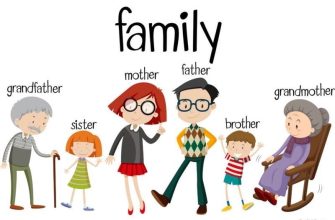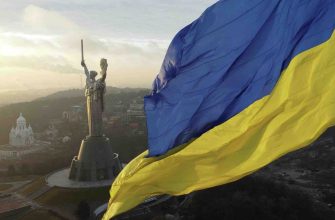“Свята Великобританії” на англійській мові викладений в цій статті.
“Свята Великобританії” англійською
It may seem surprising but the British have fewer holidays than many other countries. Some of them are named Bank Holidays due to the fact that on those days the banks are closed.
In England and Wales they comprise at present five bank holidays (New Year’s Day, Easter Monday, spring and late summer holidays at the end of May and August respectively, and Boxing Day1; they also have two common holidays (Good Friday2, Christmas Day). In Scotland and Northern Ireland they have six bank holidays, plus two other public holidays. The particular dates of the bank holidays are fixed annually.
New Year’s Day
January, 1
It is a bank holiday though many Britons do not celebrate on New Year’s Eve. In Scotland New Year’s Eve is called Hogmanay3 and is an occasion for joyous celebration. In London Scottish people gather on the steps of St. Paul’s Cathedral and sing “Auld Lang Syne”4 at midnight.
Easter
April, 3
The word Easter owes its name and many of its customs to a pageant festival hold eostre which is the name of Anglo-Saxon goddess of spring time. Every spring European peoples celebrated the festival to honour the awakening of new life in nature. Christians related the rising of the sun to the resurrection of Jesus and their old spiritual rebirth. This “holy” day is celebrated in many countries of the world.
Spring and Summer Bank Holidays
The Summer Bank Holidays is the most popular holiday, because it comes at a time when children are not at school. Many families try to go away to the seaside or the country as they may indeed have done at Easter or in Spring.
Guy Fawkes Night
November, 5
Guy Fawkes Night or Bonfire Night is an annual celebration held on the evening of 5 November to mark the failure of the Gunpowder Plot of 5 November 1605, in which a number of Catholic conspirators, including Guy Fawkes, attempted to destroy the United Kingdom’s Houses of Parliament, in London. The occasion is primarily celebrated in the United Kingdom where, by an Act of Parliament called The Thanksgiving Act, it was compulsory until 1859, to celebrate the deliverance of the King of England, Scotland, and Ireland. Festivities are centred on the use of fireworks and the lighting of bonfires.
Halloween
October, 31
Halloween is also called All Saints’ Eve. It has ancient roots in the polytheistic Celtic harvest festival of Samhain (pronounced /sɑːwɪn/) and the Christian holy day of All Saints, but is today largely a secular celebration.
Halloween activities include trick-or-treating , wearing costumes and attending costume parties, carving jack-o’-lanterns, ghost tours, bonfires, apple bobbing, visiting haunted attractions, pranks, telling scary stories, and watching horror films.
Remembrance Day
November, 11
Remembrance Day (also known as Armistice Day) is observed throughout the Commonwealth and dates back to November 11, 1918 when all fighting in the First World War ended. it now commemorates British soldiers, sailors and airmen who gave their lives in the two world wars. Special Services are held and wreaths are laid at the Cenotaph, a war manorial at Whitehall, where thousands of Londoners observe the two-minute silence and participate in the remembrance ceremony. Similar ceremonies are held throughout the country.
Christmas
December, 25
In England Christmas is the most important of all the bank holidays of the year. it is celebrated much the same way as in the United States of America. On December 26, the Boxing Day, traditionally people give each other Christmas presents, which used to come in boxes. It is a very pleasant custom indeed.
London remains one of the world’s strongholds of pageantry much of which is centred on traditional observances connected with the Royal family. They are always attracting large crowds of spectators, native Londoners as well as foreign visitors. Here are two of them.
Trooping the Colour
This ceremony is held on the Sovereign’s official birthday in June. This is the most colourful of all London’s annual events, a pageantry of rare splendour with the Queen riding side-saddled on a highly trained horse. On Horse Guards’ Parade in Whitehall the Queen inspects the Brigade of Guards, dressed in ceremonial uniforms. Then comes the Trooping ceremony, followed by the March past of the Guards to the music of the bands. Specially noted should be the precision drill of the regiments.
The State Opening of Parliament
This is another royal event at the end of November which draws thousands of spectators, who see the Queen on the drive from Buckingham Palace to the Houses of parliament in the State Coach. The public are not admitted to parliament to see her read the speech from the Throne, prepared for her by the Government. But the State Opening is televised. Visitors are admitted to the Public Galleries only by the personal invitation of the members of Parliament.
Notes
1. Boxing Day (День подарунків) – свято це – продовження англо-саксонської традиції дарувати традиційні подарунки бідним людям і рабам. У середні віки в цей день священики зазвичай відкривали ящики для пожертвувань і роздавали їх вміст бідним людям приходу. Згодом звідси розвинувся звичай роздачі різдвяних грошових подарунків (“boxes”) прислузі і державним службовцям. обслуговуючому персоналу тощо. Святкується зазвичай 26 грудня, після Різдва, в день св. Стефана.
2. Good Friday – Велика пятниця (також Страсна п’ятниця, лат. Dies Passionis Domini) – п’ятниця Страсного тижня, яка присвячена спогаду хресної смерті Ісуса Христа, зняттю з хреста Його тіла і поховання.
3. Hogmanay ([hɔɡməneː]) – так в Шотландії називають останній день року Вважають, що це слово походить від гельської «oge maidne», що означає «новий ранок». Також є думка, що назва свята – англо-саксонського походження і спочатку писалася як «Haleg Moneth» – «святий місяць». «Хогманай» – дуже давнє свято, яке відзначали ще язичники, які вклонялися вогню і сонцю. Також він пов’язаний і зі святом сонцевороту, який існував у вікінгів.
4. Auld Lang Syne ([΄ɔːld lɑŋ΄səin]: ) – шотландська поема, написана Робертом Бернсом в 1788 році і перекладена на мелодію народної шотландської пісні
Словник:
pageantry – 1. пишне видовище, пишність, блиск 2. шик 3. помпа
pageant – 1. пишне видовище 2. пишна процесія 3. карнавальна хода 4. маскарад
celebrate – 1. святкувати 2. прославляти
eve – 1. Напередодні 2. (вуст.) вечір
joyous – 1. задоволений 2. радісний, щасливий
awakening – пробудження
spiritual – 1. духовний 2. одухотворений, піднесений 3. святий, божественний 4. релігійний, церковний 5. (амер.) спірічуел, негритянський релігійний гімн
resurrection of Jesus – воскресіння Ісуса
annual – щорічний
to hold (held, held) celebration – проводити святкування, святкувати
failure – провал, невдача
conspirator – змовник
deliverance – 1. звільнення, позбавлення 2. офіційна заява 3. (юр.) вердикт
firework – феєрверк
bonfire – вогнище
Commonwealth – співдружність
commemorate – 1. відзначати 2. святкувати 3. шанувати пам’ять 4. служити нагадуванням
wreath – вінок, гірлянда
remembrance – 1. згадка 2. пам’ять 3. сувенір, подарунок на пам’ять
ancient roots – давнє коріння
harvest – урожай
holy – святий
trick-or-treating – фраза, яку кажуть американські діти на Хеллоуїн, обходячи навколишні будинки з вимогою цукерок – «Відкупись, а то зачарую!», або «Цукерки або життя!»
carve – висікати, вирізати
jack-o’-lantern – 1. блукаючий вогник 2. ліхтар з гарбуза
ghost – привид
haunted attractions – атракціони з привидами
haunt – часто відвідувати, переслідувати (про привидів)
prank – 1. витівка, проказа, витівка, витівка 2. жарт
scary – 1. (розм.) моторошний 2. полохливий
stronghold – оплот
observances – 1. (of) дотримання 2. обряд, ритуал 3. (вуст.) повагу
splendour – 1. блиск 2. пишність, пишність 3. велич, слава
draw (drew, drawn) thousands of spectators – залучати тисячі глядачів



